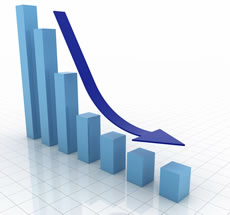Deloitte’s Access Economics report has indicated that while weak underlying income growth has stalled retail turnover within food categories, non-food sectors are continuing to benefit from low interest rates and asset price inflation.
“For now, weak underlying income growth has slammed food retail, but low interest rates and asset inflation are saving non-food sales. In total, the value of non-food turnover increased by 3.4 per cent over the year to June 2016 in real terms, while food turnover growth was just 0.7 per cent for the same period,” said Deloitte.
You’re out of free articles for this month
According to the big four firm, while supermarkets have survived the competitive environment by pushing down supplier prices, costs may not have much further to fall, with profits continuing to be squeezed.
“Supermarket and catered food operators are now relying on population growth to increase their sales, as real retail turnover per capita decreases,” the report indicated.
Australia’s non-food retail spending has shifted away from household goods, with 2016 characterised by growth in apparel and department stores.
“These new growth categories are driven as much by supply-side circumstances as they are by demand. Transformation strategies by Myer, David Jones and Kmart/Target, as well as the hype surrounding competitive international fashion entrants, has had a huge effect on turnover in these categories.”
The Access Economics report also commented on the state of interest rates, which are expected to remain ‘lower for longer’.
“Inflation is barely registering, and while growth is OK, it is below trend globally and at risk of returning below trend here.”

 Login
Login






